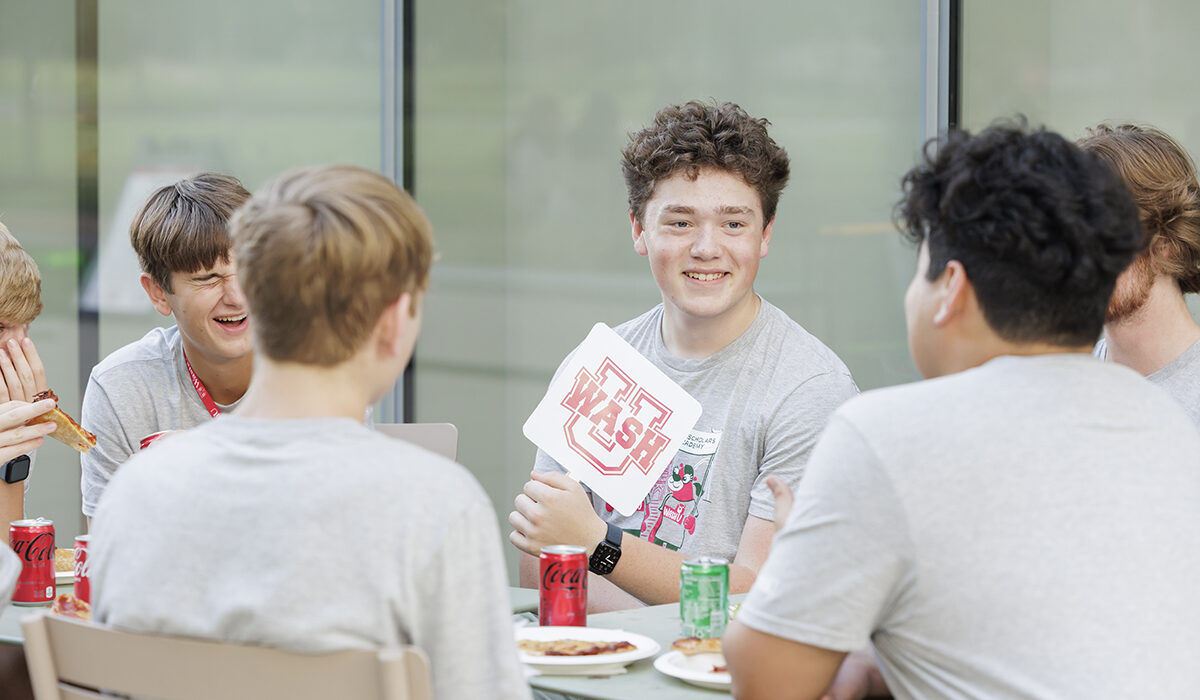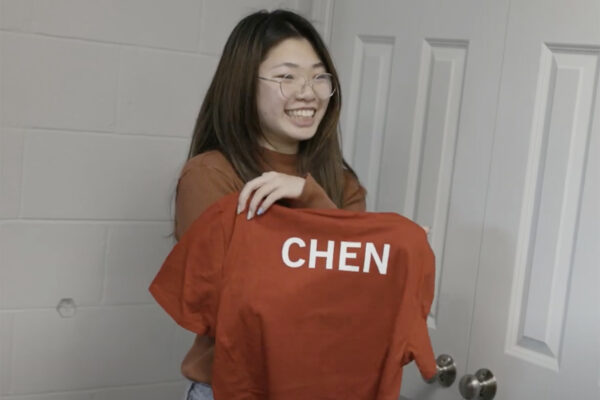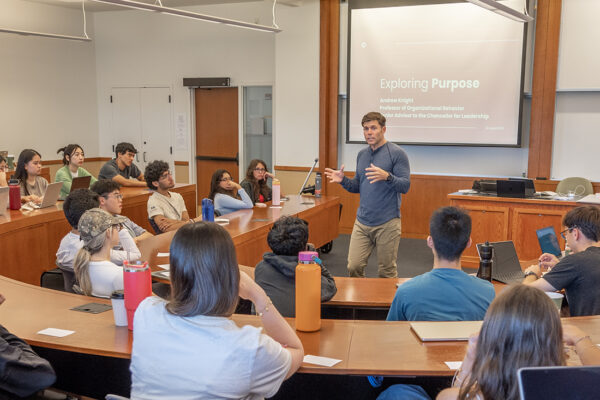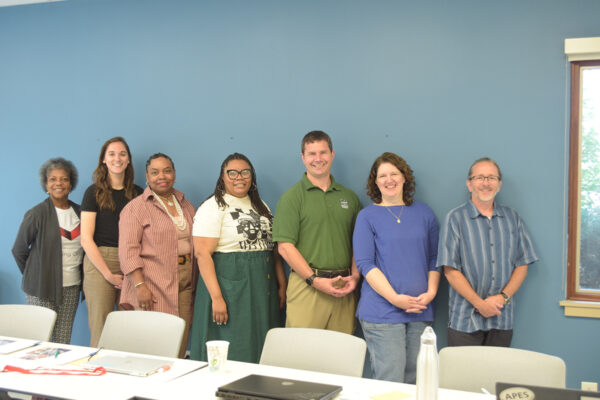WashU’s Rural Scholars Academy welcomed its third cohort of 36 incoming high school juniors to campus this month for college classes, admissions workshops and field trips to St. Louis attractions. New this year — the opportunity to meet the first graduates of the academy who will attend WashU.
“Two years ago, we were in their footsteps. There is no way any of us could have known then how much the academy was going to change our futures,” said incoming WashU student Bella Woolsey, of Summersville, Mo., as she joined current scholars in Tisch Park for a pizza party. “I came here thinking there was no way I could get into WashU and I left with the tools and the belief that I could actually make it if I tried.”
The Office of Undergraduate Admissions launched the free Rural Scholars Academy for high-achieving high school juniors in 2023 as part of WashU’s broader effort to better recruit and support rural students, many of whom do not have access to college counselors and Advanced Placement classes. The academy is supported by alumna and honorary emerita trustee Joyce Buchheit and her husband, Chauncy Buchheit, of rural Missouri.
WashU also has increased recruiting visits to rural high schools and is a founding member of the STARS College Network, which aims to increase rural enrollment at top universities.
During the one-week Rural Scholars Academy, students learned about WashU’s holistic admissions review, which considers student experiences and qualities as well as grades; and the WashU Pledge, which provides a free WashU education to admitted low-income students from Missouri and southern Illinois.
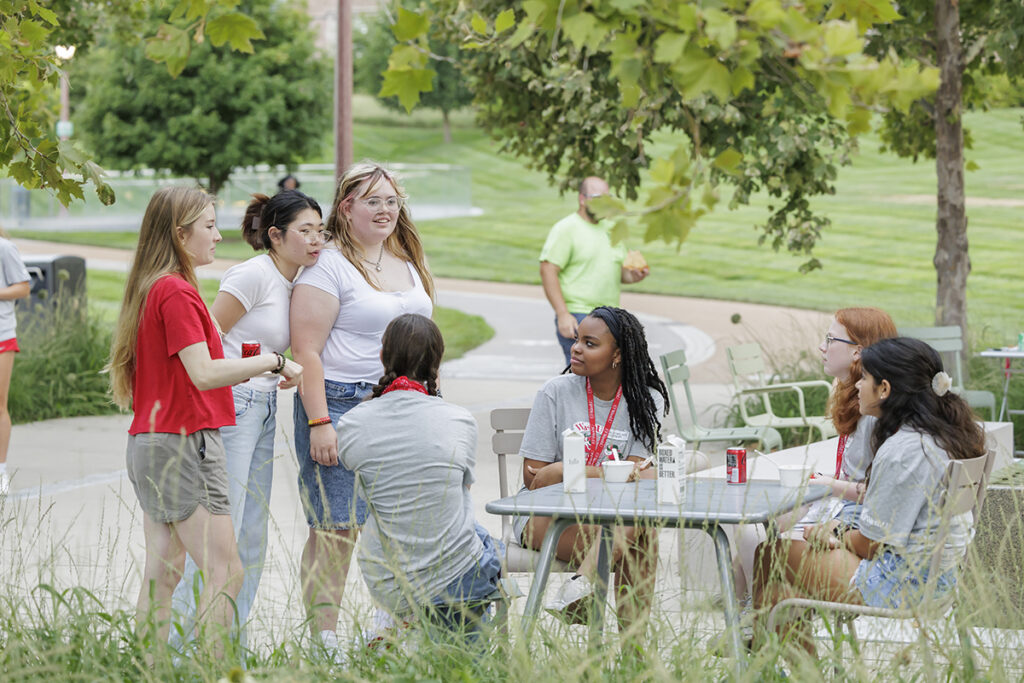
Dacoda Scarlett, inaugural associate director of rural recruitment in the Office of Undergraduate Admissions, said the academy’s early success proves what he has long known — rural students belong at WashU. Thirteen students from the academy’s inaugural cohort of 22 students were admitted to WashU, and 10 students are enrolled for the fall. Many of those students are on campus for the First-year Summer Academic Program, a five-week bridge program that boosts academic readiness and other critical skills.
“These are incredibly talented, hard-working students who are going to bring a lot to WashU,” said Scarlett, who is from the small Missouri town of Clever. “They took the lessons they learned at the Rural Scholars Academy — how to ask for letters of recommendation, how to write your essay, how to craft your activities list — and successfully applied it to their life. We now know this experience will help our scholars no matter where they apply to college.”
One of those high school students is Tao Yang, a rising junior from Canton, Mo., who aspires to be a cardiologist. He enjoyed his design thinking class with Sam Fox School of Design & Visual Arts faculty and dorm life on the South 40. He also liked the community.
“I think the best part has been being around people like me who understand what it’s like to be from a small town,” Yang said. “Even if you have the grades to get into a school like WashU, you wonder if you will fit in.”
Rising WashU senior Auriel Prepejchal of Makanda, Ill., felt the same way when she arrived on campus. She serves as both a rural student ambassador for the academy and co-founder of the Rural Students Collective, a growing student group that hosts study groups and social events and is building a directory of rural staff and faculty.
“It just really warms my heart when I hear this next generation say they feel confident about applying to college,” said Prepejchal, who is studying computational biology in Arts & Sciences. “When I applied here, I had a lot of imposter syndrome — ‘Do I even deserve to go to a school as prestigious as WashU?’ And of course I did. They do, too.”
